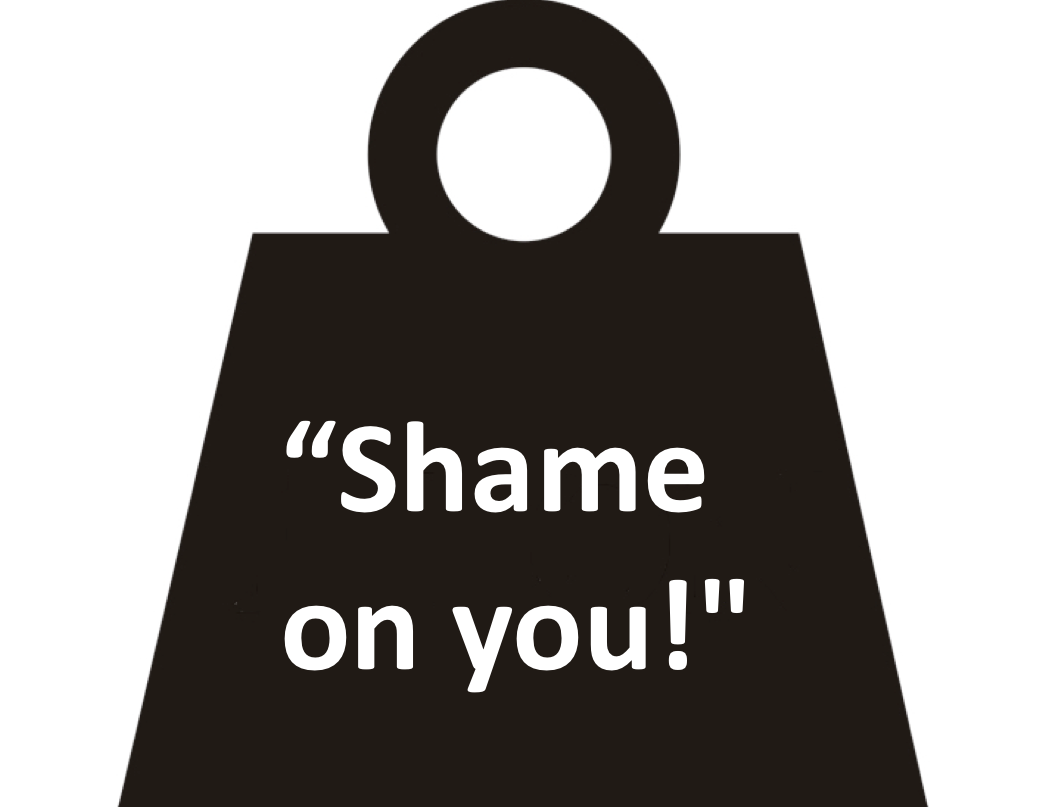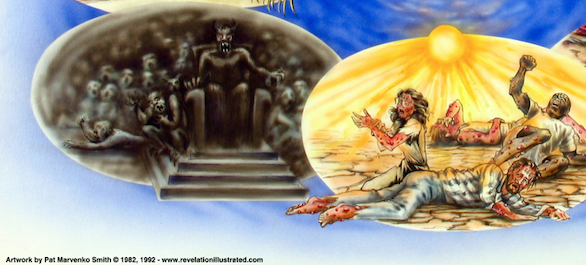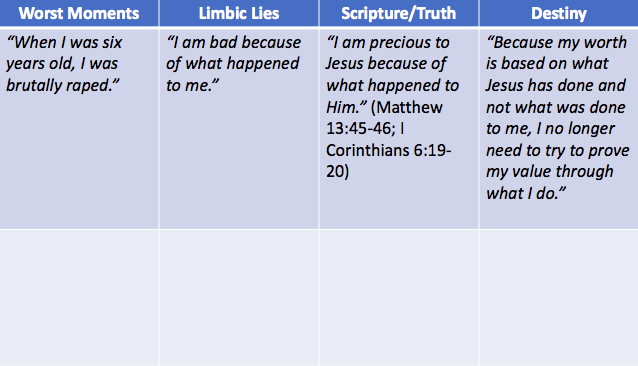“27 Make me understand the way of Your precepts; so shall I meditate on Your wonderful works. 28 My soul melts from heaviness; strengthen me according to Your word. 29 Remove from me the way of lying, and grant me Your law graciously.” Psalm 119:27-29
The Lord has been teaching me a lot about shame the past few years. Having grown up with shame-based lies in America and having served as a missionary in a shame-based country for several years, this issue of shame has weighed heavily on my soul. In this devotion I will address shame in a Christian’s life.
It is important to understand that shame is not from God. When God made the first man and woman, they were naked and unashamed before the Lord and one another (Gen. 2:25). Even after Adam and Eve sinned, God did not come to condemn them with shame, He came to cover their sin and shame (Gen. 3:9-21). For example, when Adam told God, “I was afraid because I was naked” (3:10). God replied, “Who told you that you were naked? Have you eaten from the tree of which I commanded you that you should not eat” (3:11)? God never told Adam and Eve they were naked. This was the natural consequence of their sin. Satan also reveals our shame to us when we sin (true shame) or don’t sin (false shame). His accusations against believers produce shame in their lives. The Devil uses shame to isolate Christians from God and one another. Like a roaring lion who focuses on those who are isolated and weak, Satan focuses on believers who are alone and weak (cf. I Peter 5:8).
Guilt says, “You did something wrong.” Shame says, “You are wrong.” Satan uses shame to condemn us and keep us from drawing near to God and one another.
In my devotions this morning, the Lord led me to revisit some verses I wrote about 3.5 years ago to help me overcome my battle with shame. The Psalmist writes, “Make me understand the way of Your precepts; so shall I meditate on Your wonderful works” (119:27). We need God to help us “understand” or discern the pattern (“way”) of His commands (“precepts”). Take time to invite God to help you understand how to apply His Word to your deep struggle with shame. The Lord wants us to focus (“meditate”) on the “wonderful works” He is doing deep inside of us rather than on our sin and shame. Shame tends to focus on behavior and external reformation. God’s grace and truth focus on the heart and inward transformation. Before God can change our behavior, He must change our hearts (cf. Mark 7:14-23).
As God leads me to deal more deeply with my shame, I discover that my “soul melts from heaviness” (119:28a). The word “melts” (dalaph) means “to drip or leak because cracks are not mended.” The idea is that our soul is broken and unable to retain what God gives us. Shame keeps us from believing the truth about God’s love and acceptance of us. As a result, our soul is broken and weighed down with the “heaviness” of sadness and shame. And a cycle of shame develops whereby we mess up, confess our sins, and then try harder, only to repeat the same sin because we continue to believe the shame-based lies that fuel our shame. And we stay bound to this cycle of shame. We cannot break this shame cycle until we deal with the wounds that the shame-based lies are attached to. It takes God’s Spirit to heal these wounds to our souls.
Few things are more unbearable than the heaviness of shame. It is a burden that God never intended for people to bear. Yet Satan will use shame to keep us from becoming the people God intended us to be. What is God’s remedy for this weight of shame in a Christian’s life?
“Strengthen me according to Your word” (119:28b). We do not have the strength to overcome this weight of shame on our own. Only God has the power necessary to win this battle. The word “strengthen” (qum) means “to arise or stand up.” In the context, this refers to God giving us the ability to arise from the depths of our sadness and shame by means of His “word.” The strength we need to overcome shame comes from the truth of God’s Word. If we do not make our home in God’s Word (cf. John 8:31-32), we will not win this battle with shame. No amount of determination, willpower, or “trying harder” will overcome the weight of shame. We must invite God’s Word to do that for us. How?
“Remove from me the way of lying, and grant me Your law graciously” (119:29). Shame is based on lies the enemy has attached to past wounds in our lives. Lies that say:
• “I am bad or unworthy.”
• “No one could love me as I am.”
• “I cannot depend on others to help me.”
• “I am defined by my sin and shame.”
We must ask the Lord to expose and remove the pattern (“way”) of lies that keep us enslaved to the weight of shame. And then ask Him to “grant me Your law graciously,” not harshly. The only verse of the Bible where Jesus specifically describes His heart reads, “Take My yoke upon you and learn from Me, for I am gentle and lowly in heart, and you will find rest for your souls.” (Matt. 11:29). Jesus says His heart is “gentle and lowly” (humble), not harsh and proud. Our pride can lead us to deal harshly with ourselves and others. But Christ invites us to “learn from”Him how to deal gently and humbly with ourselves and others so we “will find rest for” our “souls” in our discipleship relationship with Him. So, ask the Lord Jesus to gently replace the shame-based lies in your soul with His liberating truth. Truths that say:
• “I am loved and cherished by God.” Psalm 27:10
• “I am totally loved by Jesus just as I am.” Romans 5:6, 8
• “I can depend on others to help me through Christ who strengthens me.” Philippians 4:13
• “I am defined by the Light and Love of Jesus Christ.” Ephesians 5:2, 8
I want to share a “Lies versus Truth” exercise that is adapted from Michael’s Dye, The Genesis Process: For Change Groups Books 1 and 2 Individual Workbook (Michael Dye/Double Eagle Industries, 2012), pp. 222 -228.
With your mentor or with a group of accountability partners, review some of the most common false beliefs or lies listed below and their corresponding truths. There are blank spaces at the end where you can write in the lies you believe and their corresponding truths that are not on the list. Say each lie to yourself and only focus on the ones that FEEL true. You will know if your heart believes it is true because it will feel true. Even if it doesn’t make sense, go with the feeling. Replacing the lies with the truth is how real healing takes place. The truth is a Person, Jesus Christ (John 1:14; 14:6), not a concept or a Book. Jesus can supernaturally speak truth into our limbic system (right brain where lies are inserted) in a way that no one else can because He is full of truth and is the truth (John 1:14; 14:6; Heb. 4:12-13). Faith in Jesus’ truth produces healing, and faith comes from hearing a personal word from God (Rom. 10:17).
For each lie your heart believes, say the lie to Jesus. Ask Jesus to tell you what is true. He may bring to your mind a Scripture with which to replace the lie. Meditate on that truth until the lie does not feel true anymore. Ask Jesus if there is anything else He wants to share with you. Say the lie again and see how true it feels. If it still feels true, you may need to meditate on the truth some more or even ask for help. Pray and ask the Lord to heal and seal off any wounds, demonic influences, and behaviors that the lie created. God may show you that you need to forgive the person who caused this lie to be attached to the wound he or she gave you.
| Lie | Truth |
| 1. God cannot be trusted | God cannot lie and is always faithful (2 Tim. 2:13; Tit. 1:2; Heb. 6:18) |
| 2. God is out of control with His anger | God is slow to anger and gracious (Ps. 145:8) |
| 3. I am alone and unloved | I am cherished and loved by God the Father (Ps. 27:10) |
| 4. God could never love me | God has always loved me (Jer. 31:3) |
| 5. Nobody would love me as I am | God loves me just as I am (Rom. 5:6, 8) |
| 6. I am bad because of what was done to me | I am precious to Jesus because of what was done to Him (Matt. 13:44-45; I Cor. 6:19-20) |
| 7. I am unwanted | I am chosen by God (Ephes. 1:4) |
| 8. God is against me | God is for me, not against me (Rom. 8:31-32) |
| 9. Someone has or will condemn me | In Christ I am free from condemnation (Rom. 8:1, 34) |
| 10. I am going to be separated from the love of Christ because I’m so unworthy | No one and nothing can separate me from God’s love in Christ Jesus (Rom. 8:35, 37-39) |
| 11. I do not have what it takes | I can do all things through Christ who strengthens me (Phil. 4:13) |
| 12. I am defined by my sin and brokenness | I am defined by the light of Jesus Christ (Ephes. 5:8) |
| 13. My past is a hitching post | My past is a guidepost (Ezek. 18:14, 17) |
| 14. I am what I do or what others say about me | I am what God says about me (I John 3:1-2; 5:1) |
| 15. I am a sinner because I sin | I am a saint (one declared righteous by God) who sins (Ephes. 1:1; I John 1:8, 10) |
| 16. My behavior tells me what to believe about myself | My belief about myself determines my behavior (Prov. 23:7) |
| 17. Whatever I do, it will never be good enough | In Christ, I am good enough (2 Cor. 5:21; Ephes. 1:6) |
| 18. I must be perfect to be safe | I am hidden with Christ in God, forever safe and secure (Col. 3:3) |
| 19. I am a disappointment | I am a delight to God (Ps. 17:8; Zeph. 3:17) |
| 20. God won’t be there when I need Him | God is always available to help me (Ps. 121:1-4; Isa. 41:10, 13) |
| 21. I should never be angry, anxious, depressed, or lonely | Anger, anxiety, depression, and loneliness are signals to draw close to God. (Ps. 4:4-5; 42:5; 72:21- 26; 2 Tim. 4:16-17) |
| 22. Failure is the end of the world | Failure is an opportunity to learn (Ps. 37:23-24; Luke 22:31-34; Heb. 12:11) |
| 23. No one understands me | Jesus understands me because He made me (Ps. 139) and walked in my shoes (Heb. 4:15) |
| 24. I could never be forgiven | I am totally forgiven in Christ (Ephes. 1:7; Col. 2:13-14) |
| 25. I am a loser | I am a winner seated next to Christ (Ephes. 1:20-21; 2:5-6) |
| 26. I am a mistake | I am God’s masterpiece (Ephes. 2:10) |
| 26. I cannot change | All things are possible with God (Matt. 19:26) |
| 27. If I am not in control, something bad will happen | When I yield to Christ’s control, I can have peace (John 16:33; Phil. 4:6-7; cf. Isa. 26:3) |
| 28. I cannot cope without alcohol/anxiety/chemicals/food/sex/ shopping | I can cope through Christ who strengthens me (Phil. 4:13) |
| 29. I need people’s affection and approval to be complete | I am complete in Christ, lacking nothing (Col. 2:10) |
| 30. Christians cannot be trusted | I can learn to trust Christians who are safe (John 13:34-35; Gal 6:1-2) |
| 31. I must be liked and loved by everyone | I am likeable and loveable, but not to everyone (Isa. 53:3; John 15:18-19) |
| 32. Sex with a beautiful woman is the greatest sign I am loved | Christ’s dying in my place for all my sin is the greatest sign I am loved (Rom. 5:8; I John 4:9-10) |
| 33. I am worthless | I am worth fighting for (Exod. 14:13-14; 2 Chron. 20:15, 17) |
Prayer: Precious Father God, please give me the understanding and discernment to permit Your Word to speak to my deep struggle with shame. Help me focus on the wonderful work You are doing inside of me rather than on my failings and shortcomings. I confess that my soul melts from the heaviness of my sadness and shame. Please strengthen me as only You can with Your Word so I may arise out of this pit of shame. I pray Your Holy Spirit will expose and remove the shame-based lies that keep me bound to this cycle of shame and replace them graciously with Your liberating truths from Your Word so I may become the person You created me to be. Replace my false identity that is based upon shame-based lies with my new identity in Christ that is based upon Your Word. In Jesus’ name. Amen.











